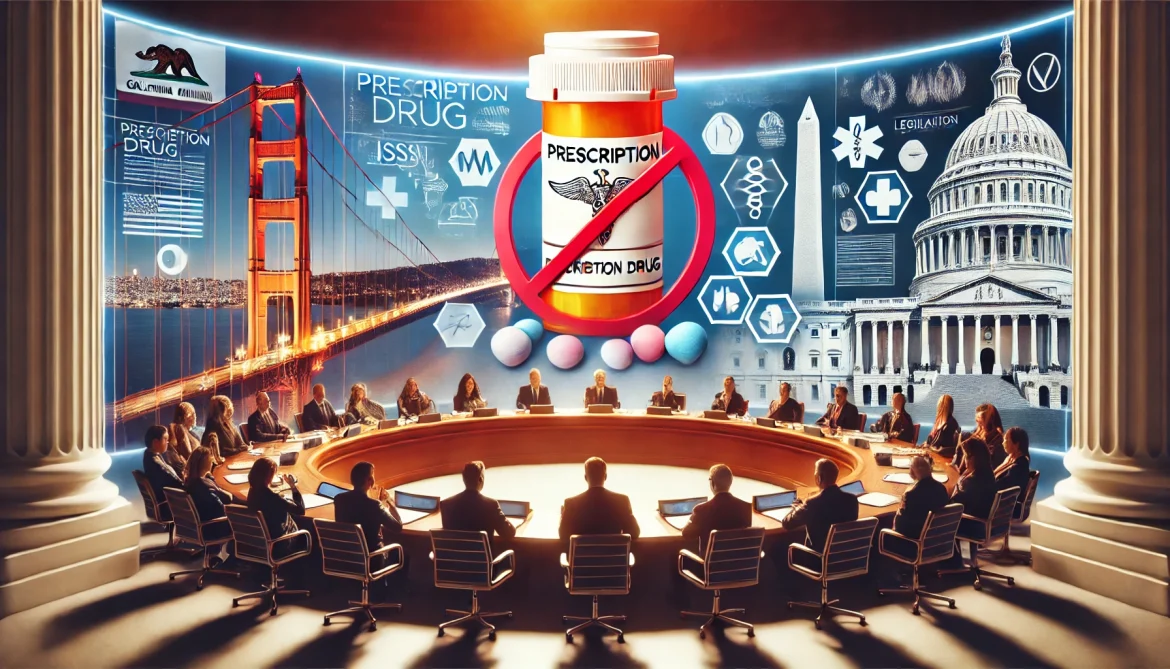California Governor Gavin Newsom is taking a bold stance on the issue of pharmaceutical advertising, voicing his support for a proposal put forth by Robert F. Kennedy Jr., the nominee for Secretary of Health and Human Services under the incoming Trump Administration. The proposal seeks to ban all pharmaceutical advertisements from television, a move that has sparked widespread debate across the political and healthcare spectrum.
Newsom shared his endorsement of Kennedy’s proposal on social media, highlighting the unique position of the United States as one of only two countries worldwide that allow direct-to-consumer pharmaceutical advertising. In his post, he stated, “It’s time to change that. Let’s get this done!” His remarks underscore a growing concern over the influence of pharmaceutical companies on consumer behavior and public health policies.
Kennedy, a well-known environmental attorney and vaccine skeptic, has long been a critic of the pharmaceutical industry. He has argued that direct-to-consumer advertising creates a conflict of interest by prioritizing profit over public health. His plan aims to address broader issues within the industry, including the role of the Prescription Drug User Fee Act in shaping FDA decisions. Critics, however, have raised concerns about his controversial stance on vaccines, with over 75 Nobel Laureates previously signing a letter questioning his qualifications for a key health position.
The debate surrounding the ban on pharmaceutical ads extends beyond Kennedy’s nomination. Supporters of the ban argue that these advertisements contribute to overprescription and unnecessary medication use, potentially leading to higher healthcare costs and a public reliant on marketed drugs. They claim that without such ads, physicians would rely more heavily on medical evidence and guidelines when prescribing treatments, free from the influence of direct consumer demand driven by persuasive marketing.
On the other hand, opponents of the proposed ban contend that pharmaceutical advertisements play a critical role in raising awareness about treatment options, particularly for rare or under-discussed medical conditions. They argue that such ads empower patients by providing them with knowledge about potential solutions, enabling more informed discussions with healthcare providers.
The financial implications of banning pharmaceutical TV ads are significant. The pharmaceutical industry invests billions of dollars annually in advertising, a substantial portion of which targets television audiences. Removing this avenue could force companies to reallocate resources toward other marketing strategies or increase their focus on digital platforms. This shift could also impact broadcasters and media companies, which rely heavily on advertising revenue from pharmaceutical firms.
As the U.S. Senate prepares to deliberate on Kennedy’s nomination and the broader implications of his proposed policies, the topic of pharmaceutical advertising is becoming a central point of contention. The discussion reflects larger questions about the role of corporate influence in healthcare and the balance between consumer rights and public health priorities.
Governor Newsom’s support for the initiative adds political weight to the conversation. Known for his progressive policies, Newsom’s alignment with Kennedy on this issue highlights a bipartisan interest in reducing pharmaceutical industry influence over consumers and healthcare decisions. His statement has already garnered attention from advocacy groups and lawmakers, signaling that this issue may gain momentum in the coming months.
The proposal also aligns with growing public skepticism about the pharmaceutical industry, particularly in the wake of rising drug prices and controversies over the approval and marketing of certain medications. Calls for greater transparency and accountability in the industry are becoming more pronounced, and the push to ban TV ads could become part of a broader reform movement.
As this story develops, the nation watches closely, with stakeholders from across the healthcare, media, and political sectors weighing in on the potential impact of such a transformative policy change. Whether Kennedy’s nomination and his proposal succeed will depend on how the debate unfolds in the coming weeks and months.



